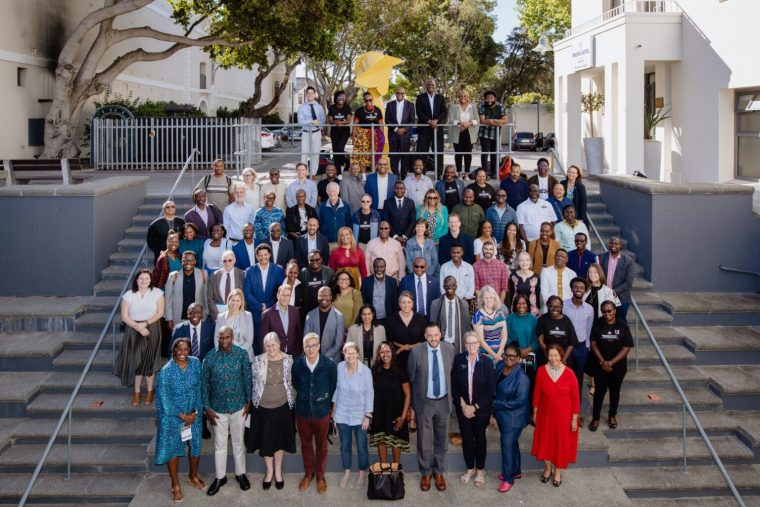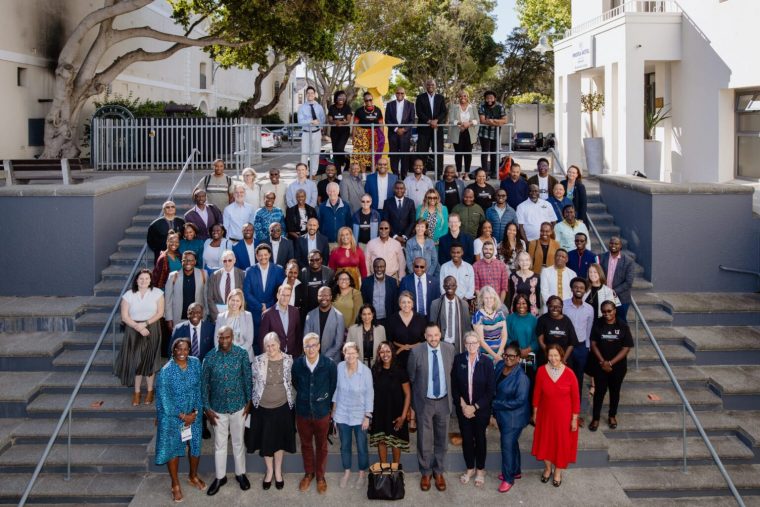Since its inception in 2012, the Mastercard Foundation Scholars Program has been a beacon of hope for young people across Africa, providing unparalleled opportunities to pursue their dreams, uplift their families, and make lasting contributions to their communities. Today, the Mastercard Foundation is proud to build upon the Scholars Program’s legacy of transformative impact with the launch of the Africa Higher Education Health Collaborative (AHEHC), a groundbreaking 10-year initiative to revolutionize primary healthcare across the continent.
Africa, home to 16 percent of the world’s population, currently faces a significant shortage of skilled health workers, with only 2.2 skilled health workers per 1,000 population – one-third of the global average.[i] By 2030, there will be a shortage of about six million skilled health workers. This, combined with the fact that the health sector in Africa contributes only about five percent to the continent’s GDP (compared to the global average of 10 percent), underscores the urgent need for targeted interventions to unlock the sector’s untapped economic potential.
“The Africa Higher Education Health Collaborative seeks to leverage universities to address the critical challenges facing the health sector in Africa and in the process create work opportunities for young people,” said Peter Materu, Chief Program Officer at the Mastercard Foundation. “By strengthening primary healthcare, enhancing workforce development, and promoting entrepreneurship and innovation, we aim to create a sustainable impact on population health and unlock significant economic growth across the continent.”
The Africa Higher Education Health Collaborative is anchored in the principles of partnership, emphasizing respect, inclusivity, and collaboration among all stakeholders. By co-creating solutions and embracing diverse knowledge systems, the Collaborative aims to foster a shared vision and culture of collective impact. Furthermore, the Collaborative aims to develop a dynamic, sustainable, and robust network of leading African universities, alumni, government agencies, start-ups, and not-for-profit and private sector partners to create dignified and fulfilling work across the health sector.
Dawit Wondimagegn, Associate Professor at the Department of Psychiatry at Addis Ababa University, comments, “The creation of an ecosystem where Africans connect to determine the type and organization of primary care, centring primary care in policy and action, and creating a critical mass of collaborators to showcase that young Africans could have a prospect and future as actors in the development and delivery of primary care in Africa for Africa.”
AHEHC focuses on three pillars of work to achieve its objectives:
Health Employment: Enhancing institutional capacity across Africa to train skilled workers for primary healthcare, meeting the growing demand, and contributing to the extension of systems that employ and retain this primary care workforce.
Health Entrepreneurship: Optimizing entrepreneurial ecosystems within African universities, AHEHC will support the launch and scaling of health start-ups, creating jobs and driving innovative solutions to address healthcare challenges.
Health Ecosystems: Collaborating to engage with broader health sector actors and enabling African students to acquire advanced skills across diverse disciplines crucial for sustainable and transformative growth in the health sector.
The Africa Higher Education Health Collaborative recognizes that unlocking the full potential of the health sector requires addressing barriers that hinder progress, particularly in primary healthcare. These barriers include poor human resources capacity and access to health services, weak incentive structures, unaffordability of care, poor access to health services and fragmented health systems.
“Our shared vision is to work with partners to provide youth with knowledge and hands-on learning opportunities required for developing high-quality, primary health care delivery in Africa. The Health Collaborative is envisioned to be part of broader, multi-sector efforts led by Africans, for Africans. This work will help stimulate Africa’s economic growth, address access-to-care issues, and create stable, rewarding jobs in contributing to the health sector, ultimately contributing to robust societies,” said Professor Joseph Wong, Vice President, International, at the University of Toronto.
The Africa Higher Education Health Collaborative envisions a transformative impact on primary healthcare across Africa through strategic interventions. This includes equipping 30,000 skilled health practitioners and community health workers to deliver innovative and high-quality primary healthcare services, fostering overall community wellness, and contributing to economic transformation.
Additionally, the Collaborative aims to nurture over 10,000 innovative and sustainable health ventures, creating a vibrant network of health entrepreneurial ecosystems. Working collaboratively with a shared vision, AHEHC seeks to build a robust network of partners, sharing best practices and lessons to create healthier and more prosperous communities.
The Mastercard Foundation and its esteemed partners in this Collaborative, including Amref International University, Addis Ababa University (AAU), African Leadership University (ALU), African Institute for Mathematical Sciences (AIMS), Ashesi University, Kwame Nkrumah University of Science & Technology (KNUST), Moi University, University of Cape Town (UCT), and University of Toronto (U of T), are excited to embark on this transformative journey, committed to building a healthier, more sustainable future for Africa.
About the Mastercard Foundation
The Mastercard Foundation is a registered Canadian charity and one of the largest foundations in the world. It works with visionary organizations to advance education and financial inclusion to enable young people in Africa and Indigenous youth in Canada to access dignified and fulfilling work. Established in 2006 through the generosity of Mastercard when it became a public company, the Foundation is an independent organization separate from the company, with offices in Toronto, Kigali, Accra, Nairobi, Kampala, Lagos, Dakar, and Addis Ababa. Its policies, operations, and program decisions are determined by the Foundation’s Board of Directors and leadership.
[i] World Health Organization. 2016. Health Workforce requirement for Universal Health Coverage and Sustainable Development Goals; Background paper. Geneva: WHO.
More News & Events
Skip scroller content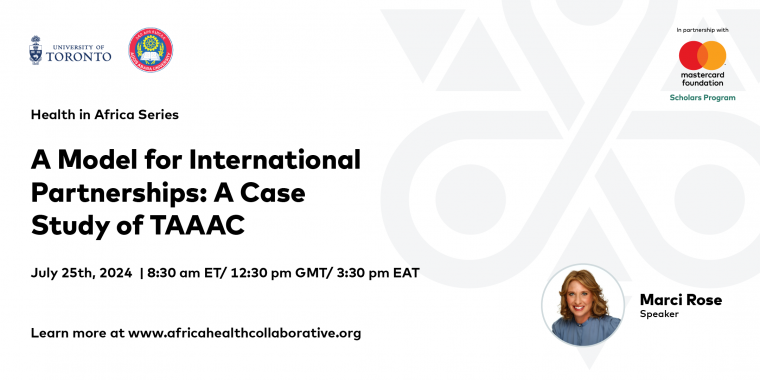
A Model for International Partnerships: A Case Study of TAAAC
The University of Toronto and Addis Ababa University are pleased to invite you to the next episode of the Health in Africa series discussing A Model for International Partnerships.
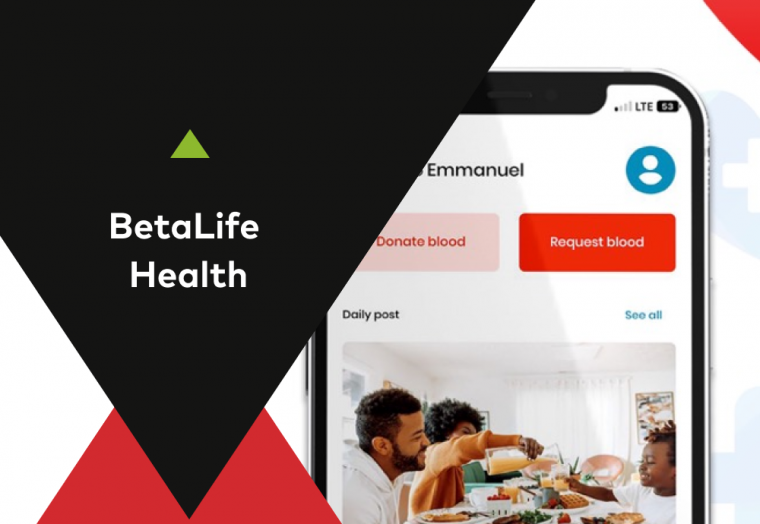
Venture Spotlight: BetaLife Health
BetaLife Health uses artificial intelligence (AI) to revolutionize blood supply management across Africa. Their platform uses predictive analytics to optimize blood inventory levels, distribution logistics and donor engagement, thereby improving the timeliness and availability of blood for transfusions.
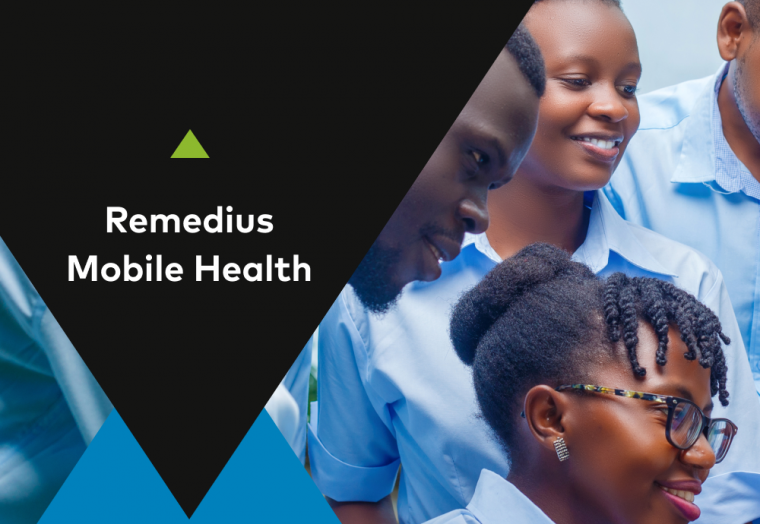
Venture Spotlight: Remedius Mobile Health
Remedius Mobile Health aims to combat the identified problems by leveraging telemedicine through the Remedius Live platform. They seek to provide fast virtual appointment scheduling with doctors and specialists at affordable rates of about five dollars and provide comprehensive care to chronically ill patients. This is executed through an integral network of facilities that provide physical care to these patients if need arises.

Venture Spotlight: Powerstove Energy
Powerstove designs and manufactures smart smoke-free cookstoves that also self-generate electricity for users to charge their mobile phones and power home appliances using proprietary renewable bio-pellets as fuel. These sustainable, mosquito repellent bio-pellets are produced from post-harvest crops and wood waste.

Venture Spotlight: SnooCODERED
SnooCODERED aims to solve the problem of inadequate healthcare infrastructure (systems, facilities and human resources) in Africa. It is doing this by providing a suite of cost-effective mobile healthcare logistics applications that democratize access to the ambulance or first aid response, facilitate the delivery of medical supplies to diverse populations, and improve contact tracing and epidemiological modelling.
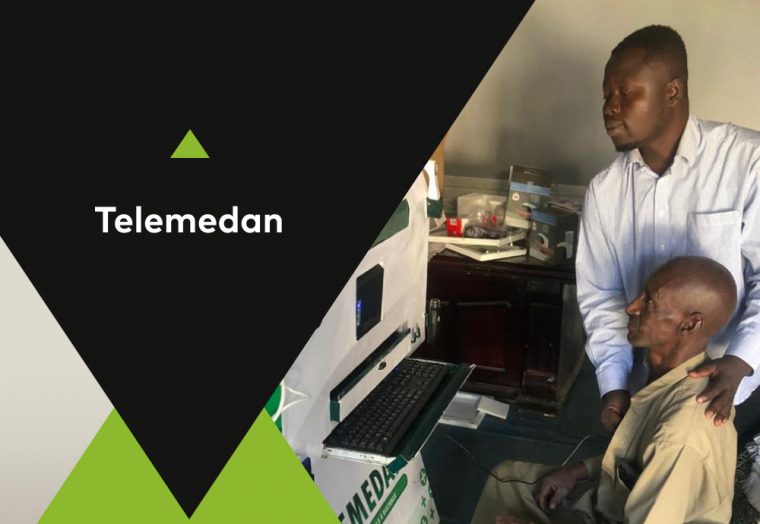
Venture Spotlight: Telemedan
Telemedan creates telemedicine kiosks in underserved communities in order to move toward closing the healthcare accessibility gap. Their kiosks facilitate video conferences between patient and doctor. They are equipped with medical devices for taking vital signs, such as ECG analysis, temperature measurement and blood oxygen saturation. Further, they feature stethoscopes, dermascopes, an HD camera and a scanner for the easy sharing of documents and lab results. With a focus on ease-of-access, Telemedan’s kiosks are user-friendly and accessible to those of varying levels of technology literacy.

Venture Spotlight: BuriCare Limited
BuriCare Limited has launched their Kangacare baby carriers, designed to address the critical need for newborn care, especially in regions lacking adequate neonatal facilities. With only four Neonatal Intensive Care Units available in their country, Kangaroo Mother Care emerged as a cost-effective solution, promoting vital skin-to-skin contact between mother and newborn to regulate body temperature. These locally knitted carriers are equipped with essential sensors capable of monitoring the baby’s temperature, pulse rate, and oxygen saturation. In the event of any abnormalities, an alarm alerts the mother to seek immediate assistance.
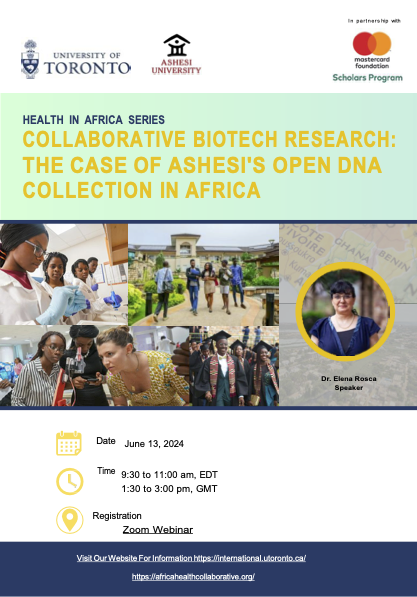
Collaborative Biotech Research: The Case of Ashesi’s Open DNA Collection in Africa
The University of Toronto and Ashesi University are pleased to invite you to the next episode of the Health in Africa series discussing Collaborative Biotech Research: The Case of Ashesi’s Open DNA in Africa.

Venture Spotlight: A-Lite Vein Locator
The A-Lite Vein Locator is a medical device that facilitates the non-invasive detection of veins under the skin. Using the A-Lite Vein Locator shortens cannulation time by up to 88.5 seconds and lowers the risk of needle-stick injuries and infections. Further, the use of the A-Lite Vein Locator has been shown to decrease medical waste and unnecessary use of clinic resources.

Venture Spotlight: Vas MedTech
Vas MedTech offers FlexiGyn, a portable, user-guided, and minimally invasive diagnostic camera that can operate in less specialized settings. This innovation is not only cost-effective, but also enhances accessibility. FlexiGyn enables community primary healthcare providers, such as nurses and general practitioners, to perform initial screenings and seamlessly consult with gynecologists for further diagnosis and referrals. FlexiGyn aims to make comprehensive women’s health care more accessible and convenient than ever before, thus addressing a global disparity in women’s health services.
